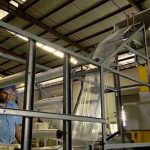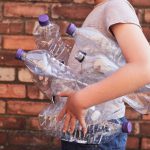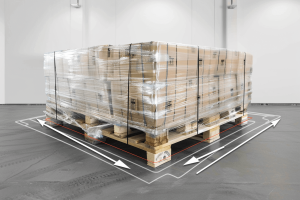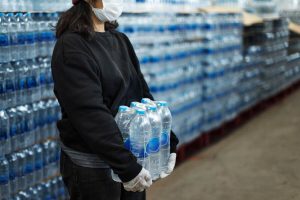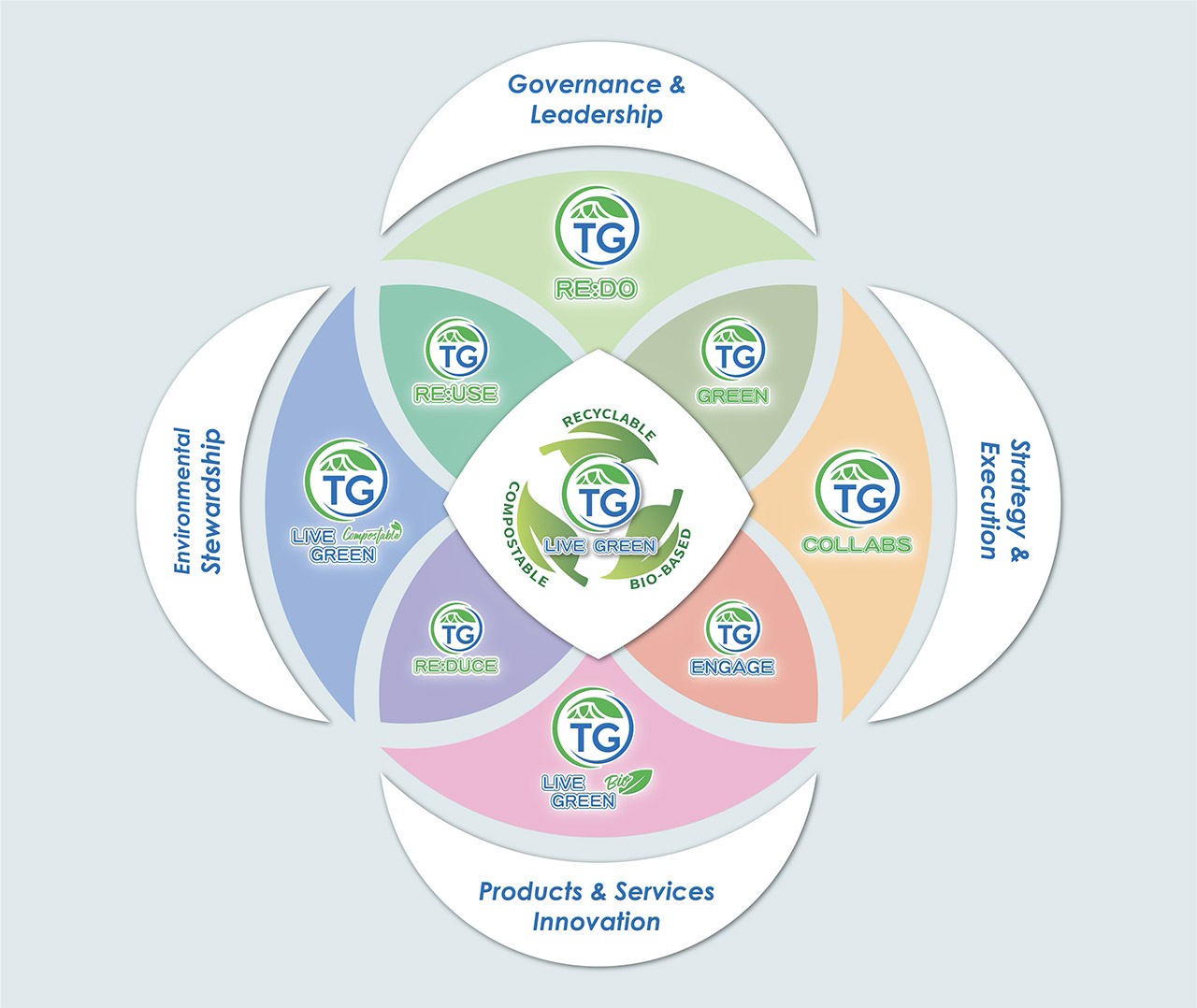
Are the sustainability efforts made today enough?
Sustainability seems like a buzz word these days. It is a cycle whereby processes and work can be done and redone again through a long term process without depleting finite resources. It means resources can be used—just like a loop— to prolong a product’s usability cycle into many series.
We know you have come to realize the importance of circularity, especially when more exposure is given on news of pollution devastation on our environment and health comes to light.
Sustainability is compared to the linear economy, where products have only one lifetime. They are created, used, and dumped—somewhere in the world, lost and forgotten.
However, in the case of plastics, it doesn’t rot and become one with nature again.
Plastics don’t break down quickly, and when it does — it becomes microplastics. These are non-living solid matters that stay in the earth or in the water that comes back to haunt us. We certainly don’t want it to pollute our soil nor have it in our body when we drink our next glass of water.
Unfortunately, this might be the case — and will increase in volume if something is not done about it.
Though plastic recyclability is not directly mentioned in the Sustainability Goals set by the UN in 2015, the effect of plastic pollution and its importance to promote recycling can be reflected in:
- SDG 3: Good health and well-being.
- SDG 6: Clean water and sanitation.
- SDG 11: Sustainable cities and communities.
- SDG 12: Responsible consumption and production.
- SDG 13: Climate action.
- SDG 14: Life below water (protection of the seas and oceans).
- SDG 15: Life on land (restore ecosystems and preserve diversity).
But how does one go all out to combat this issue when you are not sure or alone?
Despite the issue of pollution, tertiary plastic packaging is still needed unless we stop buying things globally or trade internationally. Without packaging services, cost increases and prices will surely follow too. This is because, without professional packaging help, it is costly to secure our goods and ensure that they arrive at our destination in one piece.
Would the products still be usable or sellable to our customers without professional packaging?
Through a global setup of primary, and secondary, tertiary packaging providers, the cost of manufacturing and production will be brought down. Orders will be physically secured as well to be delivered as expected. Damages of goods and spillage would be the least of your worries so that you can focus on marketing and the running of your business.
Now that we know that plastic packaging is indeed essential, but what about the undesired effect of it— environmental pollution. What happens after all those plastics after it has been used?
Thong Guan has also started thinking about sustainability efforts. We are equally concerned about our environment and our children’s future too.
We know you share the same concerns as well. That is why you have set up sustainability goals for your company.
Let us share with you our efforts on some sustainability projects that we have embarked on.
TG RE:DO
How does plastic waste like used film go back to being reused again? Introducing Thong Guan’s Re:DO program. This is our initiative to close the loop by taking back unwanted waste and put them back into useful plastic products through their own recycling program. Instead of going to the forgotten world of trash, our Re:DO program prolongs its lifetime and value once again.
Here is a diagram of how Thong Guan Industries sustainability efforts work:sustainability efforts

The value of plastics increases when the loop is closed. Send us your waste so that we can complete the circle together.
TG RE:USE
To recycle one must first collect. But what kind of waste is collected and that can be recycled?
Here are two categories of waste that we will collect from:
Post-industrial waste
In industrial manufacturing facilities or plants that manufacture plastics, there are wastes. It may be a result of defects, set up, sizing, or simply mistakes and overruns that don’t pass the QC. These are post-industrial or pre-consumer waste— waste that has never seen the daylight or reached consumers yet.
These wastes are reconverted back and made into other useful products like Maxstretch Green so that it can be of use once again.
Post-consumer waste
Post-consumer wastes are material that has served its created purpose as a consumer item and also separated from other materials, which is intended to be disposed of. It has concluded its life cycle as a consumer product and to be recycled and reused again.
There are two types of post-consumer waste:
End-user waste
End-user waste can be from consumers which are from household or industrial.
Wastes from households or families are mostly collected from residential areas where consumables are thrown away. These are plastics from food wraps, sausage packings, or even plastic bags that we use to contain things. Recyclers will collect them so that it can be recycled back into the marketplace.
Post-Consumer Waste (PCW)
Industrial organizations are also end-users as well.
Big organizations collect industrial post-consumer waste (like shrink film) on a massive scale for the purpose of recycling. It will then be processed into Post-Consumer Recycled (PCR) resins.
Thong Guan works with them to obtain these certified PCW materials to produce usable plastics. These plastics will live again as courier, e-commerce bags, and shrink film products.
TG RE:DUCE
Reducing the creation of plastics reduces plastic pollution. However, since the demand for plastics never ceases, one must take internal and external steps to lessen its usage. Here are some choices that we are currently embarking on.
Coreless products
To do our part externally in reducing greenhouse gas emissions, we have reduced the cores of our products.
Why?
This is because our cores are made from paper. Through doing away with these paper cores and replacing them with reusable plastic cores, stretch films can be “refilled” after a roll is finished. This initiative helps save trees from being chopped down for the purpose of creating paper cores.
Internal 3R program
What about our internal practices then? We also adhere to the policy of Reduce, Reuse, and Recycle in our workplace so that minimal plastic will go to waste for our office and factories.
We prioritize practicing a culture that encourages the appreciation for recycling products so that waste can prolong its lifetime. Wastes are segregated so that it can be recycled to be used once again in the market through recycling.
TG BIO
Thong Guan’s sustainability efforts also include creating plastics through bioresources.
What are bio-based products? These are products made from renewable resources that don’t tax or finite resources like petroleum in the creation of useful plastics products like flexible packaging.
These bio-based plastics have been tested and found to be proven as it has good high impact strength and also high resistance against unwanted punctures too.
Materials like bio-based food wrap help to save food as well. Food wraps are used to pack food so that it lasts longer, remains fresher, and ultimately reduces waste from the food supply chain. Since we have to use it, why not use bio-based products that go back to nature?
TG COMPOSTABLE
How about self-composting plastic waste? Earlier, we mentioned that plastics are not able to compose as it is made from non-compostable materials.
However, with modern technology, we can create plastics from renewable sources. Plastics that are extracted from renewable materials like corn starch (PTH – ethylene) can break down within three months because it is made from natural elements. It will also be eaten by microbes and will not end up in a forever existence like any regular plastic.
How does Thong Guan produce compostable products?
We use only 100% of compostable resins to convert them into plastic bags like garbage bags, shopping bags, food packaging, and protective packaging. With this product, we present you a choice to choose to opt-in compostable materials to combat plastic pollution together.
TG ENGAGE
Well, we already have a process to close the cycle through Re:DO and also strategies to reuse and reduce. We also practice policies of internal recycling and produce environment-friendly products like coreless and compostable materials.
The next step is to test and improve our processes and products.
Our data and findings are validated through our collaboration with Newton R&D Center.
Newton helps to test and provides insightful data that will be collected for better improvement.
Insights are important so that distributors, manufacturers, logistics companies, and brand owners will be able to send their goods safely to their destination. A report showed that at least four percent of transported goods in Europe are found to be damaged (source: eumos.eu). What more the rest of the world?
Through our load stability program, we have been able to help to extensively reduce product damages and unsellable during logistics arrangements and in warehouses.
Through research and development, we create a future where we can contribute to help better the food chain through secure packaging and save precious resources from unnecessary damages.
We Can Achieve Sustainability Efforts Together
There is much news of rising pollution. However, there is also much effort towards working towards sustainability out there too.
Everyone needs to do their part in contributing to sustainability so that we can achieve all of them by 2030.
Thong Guan has already started rolling out efforts to strive for sustainability. We are determined to do our part as a significant plastic packaging producer. Not only are we concerned, but championing the new plastics economy—a market that closes the plastic loop.
We also have a ready lab to test and develop products so that data can be collected and validated for result-driven efforts.
Join and collaborate with us as we close the plastic loop. Together, we can do our part for a better tomorrow. Contact us at info@thongguan.com for more info or to enquire about the programs.

